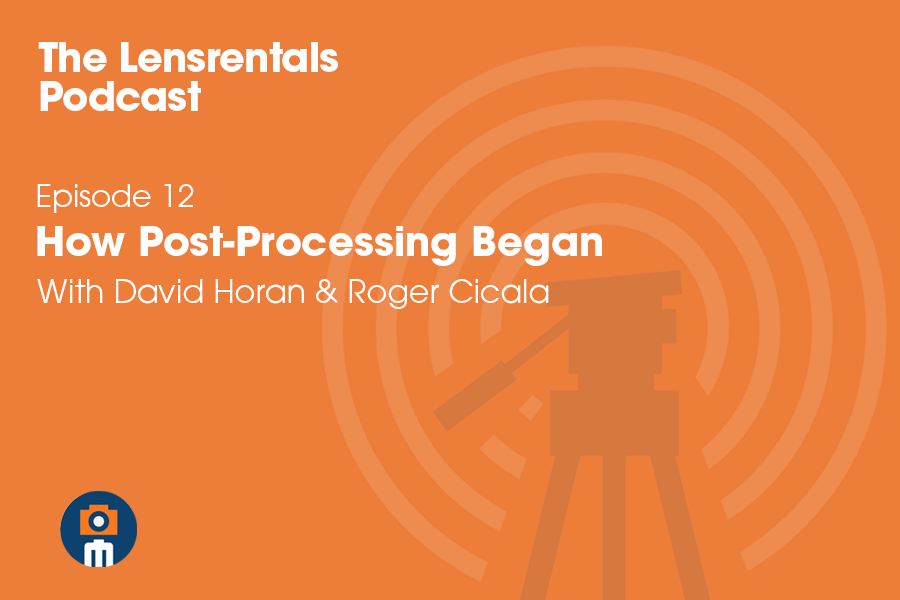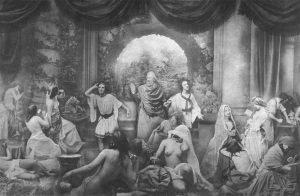Podcast Episode
The Lensrentals Podcast Episode #12 – How Post-Processing Began

Each week Roger Cicala, founder of Lensrentals.com, hosts conversations about the art and science of capturing images. From photography to videography, film, history, and technology, the show covers a wide range of topics to educate and inspire creators of all kinds.
How Post-Processing Began
David Horan, who is a member of the photography faculty at The University of Memphis Department of Art is back in the studio with Roger discussing photography pioneers, Oscar Rejlander and Henry Peach Robinson. Both of these men grappled with many of the questions debated online to this day: What is photography? What is technique? And what is science? Hear how they thought through the stances they took on realism vs staged productions.
During this episode, Roger and David try to tackle the questions regarding photography and post-production, and how it applies to the artistic nature of photography. These questions have stood within the medium since its foundation, and still continue to get challenged today. Photography as a medium started solely as a way for documentation, and not through artistic expression, and it wasn’t until the aforementioned work of Oscar Gustave Rejlander and Henry Peach Robinson that the technique transformed as a way to storytelling and expression.
Among the works discussed is the photograph by Oscar Rejlander, entitled “Two Ways of Life”. Looking more like a painting from the renaissance era than a photograph, Rejlander staged a photo depicting the life choices of two men – one towards virtue and religion, and the other toward vices, gambling, and lust. For this time, a photo created beyond the needs of documentation of events was unheard of and immediately brought into question what photography means and the purposes it serves.
Rejlander continued these pieces of work, and the questioning of the photography medium with his later works entitled ‘An Apology for Art‘, ‘Poor Boy‘, ‘Ginx’s Baby‘ and more. In each of his pieces of work, he blended various art mediums to create a narrative rather than simply documenting, and helped transform the medium as we know it.
Listen along as Roger and David walk through these incredible pieces of art from the 1800s, and explore how the question of what is photography is still questioned and debated today.
Timestamps
0:20 – Introduction to Roger Cicala and David Horan
01:00 – A brief overview of what was discussed in part one portion of this History episode.
02:00 – Drawing parallels from post-production from the 1800s to today
03:00 – A look into Oscar Gustave Rejlander’s work – the photographer credited as being among the first to use post-production and compositing.
05:40 – How the labor-intensive post-production work of Rylander was immediately questioned as actual photography
06:30 – How Oscar Gustave Rejlander had his photography censored
07:20 – How Rejlander’s work was rejected by both photographers and painters
08:20 – How Rejlander’s ‘Poor Joe’ was shot staged and in-studio to illustrate an idea rather than document it.
10:00 – Bringing into question what is photography and what is digital art
11:50 – BREAK
12:40 – How Darwin used torture to capture expressions
15:00 – Discussing the famous photograph entitled Ginx’s Baby
The Lensrentals Podcast is a production of Lensrentals, founded by Roger Cicala. Our production staff includes Drew Cicala, Ryan Hill, Sarah McAlexander, SJ Smith, Julian Harper, John Tucker, and Zach Sutton. Other contributors include Roger Cicala, Joey Miller, Ally Aycock Patterson, Joshua Richardson, and Philip Robertson.
Thanks to Jacques Granger for our theme song.
Submit a topic idea, question, or comment, leave us a voicemail at 901-609-LENS, or send us an email at podcast@lensrentals.com.
Facebook
YouTube
Instagram
TikTok
Twitter
Pinterest
Author: Lensrentals
Articles written by the entire editorial and technical staff at LensRentals.com. These articles are for when there is more than one author for the entire post, and are written as a community effort.






